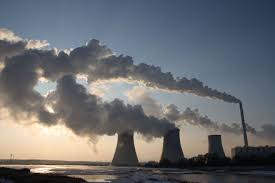Courtesy : www.dfat.gov.au
Climate change whitepaper
The challenge posed by climate change will deepen over the next 10 years. Countries will need to factor climate change in to long‑term planning and investment, including its implications for national and regional security.
Already, changing environmental conditions are evident, including rising temperatures and sea levels and increasingly frequent and severe weather events and natural disasters. This is leading, in turn, to economic, environmental and security risks. In Australia, those risks extend to our coasts and beaches, and to our agriculture, water resources and fisheries.
Climate change will sometimes impede economic development, drive additional displacement of people and, if left unchecked, add to global stresses on the supply of food and water. Many countries in Australia’s immediate region, especially small island states and those with large delta cities, will be increasingly affected.
Australia has comprehensive policies to reduce domestic emissions while maintaining our economic competitiveness. The Government is reviewing its climate change policies to ensure they remain effective in achieving Australia’s 2030 emissions reduction target and Paris Agreement commitments. The review will monitor and be informed by developments in international climate policy, and include a focus on electricity prices. The Government also recently announced a national energy guarantee, under which retailers of electricity will need to meet a guarantee for reliability and emissions reductions in line with Australia’s commitments under the Paris Agreement. Our commitment to reduce emissions by 26 to 28 per cent below 2005 levels by 2030 is among the highest per capita reduction targets for an advanced economy.
Australia will work in partnership with developed and developing countries to take effective action on climate change. The United Nations Framework Convention on Climate Change, and in particular the Paris Agreement, requires action by both developed and developing parties. The framework also allows countries to determine the nature and extent of their contributions. To date, more than 160 countries have ratified the Agreement. While disappointed by the decision of the United States to withdraw, Australia remains committed to the Paris Agreement.
Responding to climate change will continue to be a priority for Australia’s development assistance. We are investing more than $1 billion over five years to support developing countries to reduce their emissions and build resilience to climate change.
Australia is also boosting our response capability to natural disasters as well as improving disaster preparedness. When disasters strike, within 48 hours Australia can deploy relief supplies, humanitarian specialists and health and urban search and rescue teams. We also invest in regional disaster preparedness to help save lives, minimise economic loss and enable communities to recover more quickly. Our new deployment capability, Australia Assists, will bolster our ability to send Australians overseas to support these efforts.
Australia has a strong interest in an effective global transition to a low-emissions economy while supporting growth and affordable energy. Although emissions are still rising globally, there is momentum towards a low-emissions economy, driven by technological advances and lower costs. Many of our major economic partners, including China and India, are investing in green growth.
Australia stands to benefit from these trends because of our abundant renewable resources and expertise in low emissions, clean energy and renewable technology. We will have the opportunity to boost exports of climate services and technologies and to attract investment. Australia also has expertise in sustainable agriculture and cities, climate smart infrastructure, water management and climate finance.
To take advantage of these opportunities and capture the benefits of the global energy transition, the Government is investing in clean energy technologies. For example, the Clean Energy Finance Corporation and the Australian Renewable Energy Agency have already invested over $4.5 billion in projects worth over $11 billion. The Government has also joined the global Mission Innovation initiative to double government investment in clean energy research and development by 2020.



